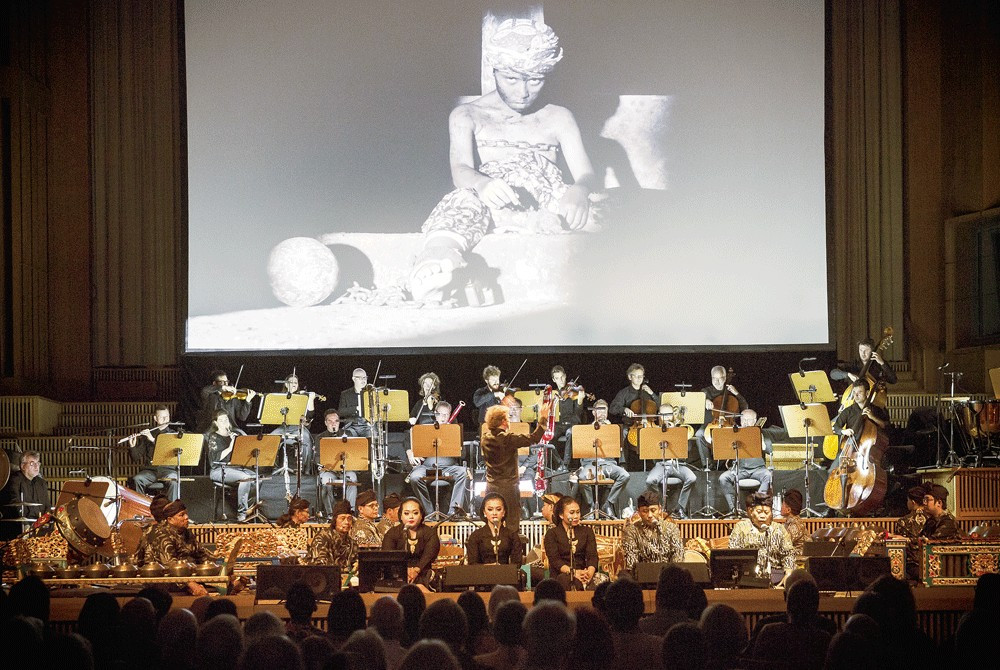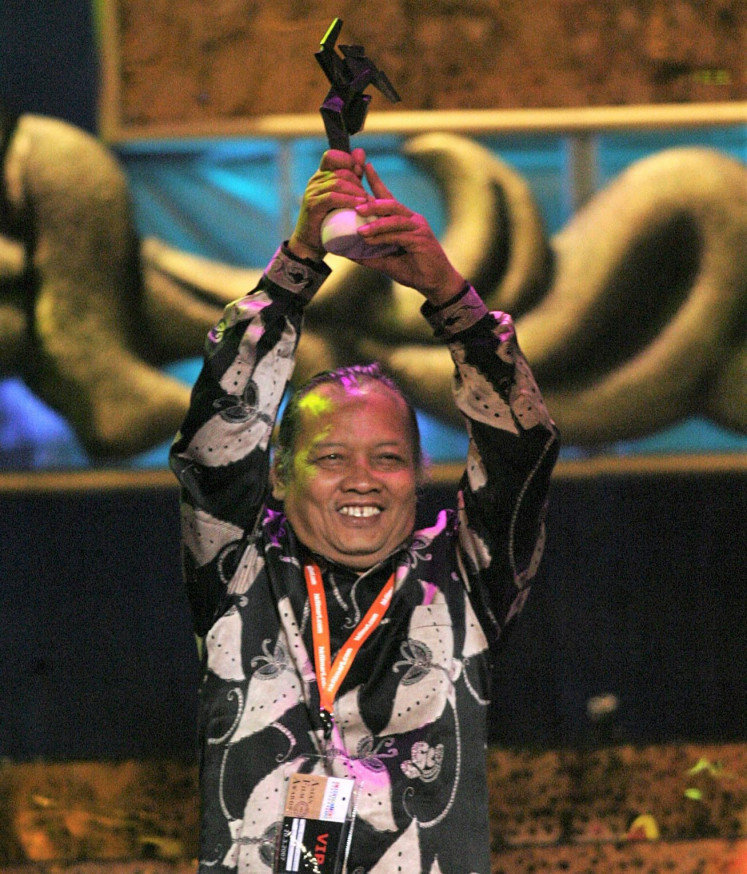Popular Reads
Top Results
Can't find what you're looking for?
View all search resultsPopular Reads
Top Results
Can't find what you're looking for?
View all search resultsObituary: Rahayu Supanggah – gamelan maestro, composer extraordinaire
Change text size
Gift Premium Articles
to Anyone
I
n a time already filled with grief and sorrow, Indonesia is losing gamelan composer extraordinaire Rahayu Supanggah at the age of 71.
Rahayu passed away in the early hours of Tuesday at Brayat Minulya Hospital in Surakarta, Central Java and was buried at Astana Loyo Benowo Cemetery later that day. He is survived by his wife, Sundari Supanggah and three sons.
The cause of death has not been made public but Rahayu had suffered a stroke and his health had continued to deteriorate since last year.
Born in Boyolali, Central Java, the man, known by many as Panggah, was a force to be reckoned with for his work with gamelan – with over half a century of experience with the instruments and showcasing them – performing and teaching – in over 40 countries.
His love of music was born out of his own upbringing, having been raised in an artistic family. His father, Gondo Saroyo, was a famed dalang (shadow puppet master) in Boyolali, while his mother, Jami, was a skilled player of the gender, a type of metallophone used in gamelan music.
It was in their own house-cum-studio that Rahayu witnessed dozens of gamelan crews being trained by his father, who also coached those interested in the traditional Javanese performing arts.
His name became widely known once he was inducted into the Surakarta Karawitan Conservatory (Kokar). He studied at the Surakarta Indonesian Academy of Karawitan Arts (ASKI), the predecessor to the Surakarta Indonesian Institute of the Arts, where he would then teach as a professor.
After finishing his studies at ASKI in the early 1970s, Rahayu became a traditional Javanese karawitan (music ensemble) teacher in Australia from 1972 to 1974. He later toured Europe throughout 1976.
Rahayu often traveled on cultural missions abroad, something that he called the most important moment of his life. “After coming home from the mission, I started taking gamelan seriously. I wanted to highlight traditional arts on an international scale,” he said in a 2010 interview with The Jakarta Post.
Perhaps his claim to fame was the Gambuh repertoire he created in 1979, which became the talk of the town at the Jakarta Arts Council’s Young Composer Week, and was also his ticket to performing at the prestigious Royal Albert Hall with the London Symphony Orchestra.
“You can call me anything you like – composer, gamelan player, pengrawit. For me, what’s important is playing music with your best. Making music is keeping the harmonization,” he said.
In the early 1980s, Rahayu became a doctoral student at the Université Paris Diderot’s Ethnomusicology department and throughout the decade to the 1990s, he worked closely with noted film directors such as Barbara Benary, Jody Diamond, Toshi Tsuchori, Phillip Corner, Katsura Kan and Warner Kaegl.
Back home, he also worked intensively with names like Suryadarmo, Jun Saptohadi, Suka Hardjana, Sardono W. Kusuma, Garin Nugroho, Dwiki Dharmawan and Idris Sardi.
For his works, Rahayu was bestowed the Bintang Budaya Parama Dharma award in 2010 by former President Susilo Bambang Yudhoyono to honor his work on culture.
Along with his works in films, Rahayu was also responsible for bringing gamelan and Indonesian instruments onto the world stage with his works in theater.
His composition is one of the main aspects of the theatrical and musical performance I La Galigo by Robert Wilson. Based on the Bugis creation myth Sureq Galigo, it made its debut in 2004 in Singapore and then toured the world before coming back home in 2018, being staged at the IMF-World Bank annual meeting in Bali.
Rest in peace: Composer Rahayu Supanggah receives the best composer award at the 1st Asian Film Awards in Hong Kong in 2007. He passed away on Tuesday at the age of 71. (AFP/Mike Clarke )Throughout his illustrious career, Rahayu has been awarded numerous awards, both at home and abroad.
He was named Best Composer during the 2006 SACEM Film Festival in Nantes, France; Best Composer at the 1st Asian Film Awards in Hong Kong (2007); Best Original Score at the 26th Indonesian Film Festival (2006); and Best Composer and World Master on Music and Culture in Seoul, South Korea (2008).
Even with numerous awards and experience under his belt, Rahayu’s work in Garin Nugroho’s musical Opera Jawa (Requiem From Java) brought him the Best Composer award across three festivals: Asia Pacific Film Festival, Indonesian Film Festival, and the Asian Film Awards.
Rahayu would then go on to collaborate with Garin again in the director’s silent film Setan Jawa (The Javanese Devil) in 2017, for which he composed the score with Australian composer Iain Grandage to represent the movie’s sense of Javanese mysticism.
On his Instagram account @garin_film, Garin uploaded a picture of himself and Rahayu alongside several snapshots from Rahayu’s works, remembering their 15-year-long collaboration from 2005.
“We never talked much, but we created together from 2005 to 2020. [...] We created music together and cared for our works humbly. The journey was long but it felt so short, filled with knowledge and self-process, but meant a lot to a team of amazing maestros,” he wrote.
“Mas Panggah’s works will never die, it will live and give life, filled with inspiration to all and will usher forward the new generation. Salam Takzim, may God grant [Rahayu] the best place.” (ste)












